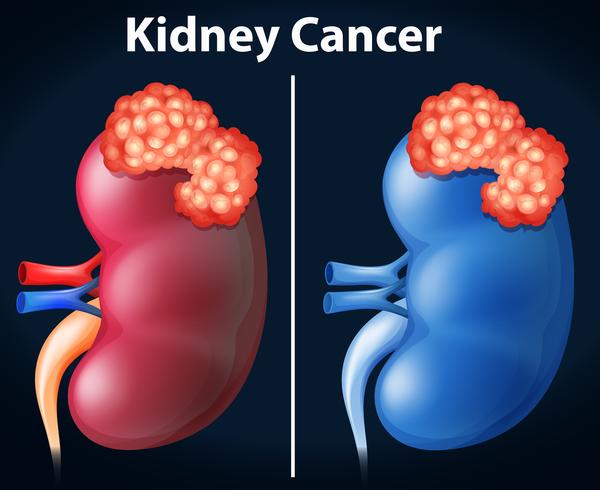The symptoms of kidney cancer and what can we do about it?
As we all know the kidney is used to filter waste from your blood, create urine, control blood pressure, create red blood cells. When the kidney is healthy it functions normally but when there is a tumor growing there may be issues in functioning in the kidney. Kidney cancer is also called Renal Cell Cancer (RCC). Kidney cancer is most commonly diagnosed in people over 60 years old. Blood in the urine is one of the most common symptoms. It appears in 40 to 50 percent of people with kidney cancer, according to the Kidney cancer association. Other more common causes of blood in the urine include or injury to the kidney infection, kidney stones, cysts. When the blood is detected always see a doctor.
Back pain is also less commonly a symptom of kidney cancer. About 41 percent of people with RCC report back pain. But most people don’t experience back pain until the cancer is in the later stages. The type of pain associated with RCC can vary. Some people report pressure instead of an ache or sharp pain. See a doctor if you have any sudden pain that is persistent and lasts more than a few days. Mention any other symptoms during your visit to help your doctor determine the likely cause.
A mass or lump in the abdomen, side or back can also be a sign of kidney cancer. It can feel like a hard, thickening, or bulging bump under the skin. About 45 percent of people with RCC have an abdominal mass. If a lump is discovered, your doctor will likely order diagnostic tests. Usually CT scan. These tests may help determine the cause of the lump. In most cases, a biopsy will be needed to confirm the diagnosis.
While in cancer fatigue is very common and gets worse day by day. About 21 percent of people with kidney cancer have anemia or low red blood cell count. Normally your kidneys signal your body to make red blood cells. Cancer can interfere with that signaling. Anemia can also cause worsening fatigue, shortness of breath, dizziness, and pale-looking skin. In kidney cancer, people lose weight, because it affects the other organs, and loss of appetite happens so that’s the reason they are not able to have food.
Maintain a healthy weight and diet, and don’t smoke. Avoid frequent exposure to harmful carcinogenic substances can also decrease your chances of developing kidney cancer. If you have any symptoms of kidney cancer, your doctor will order tests to help determine the cause. Possible tests include a urinalysis, and culture and blood tests to check for anemia. Your liver and kidney function, and other metabolic functions will also be analyzed.

